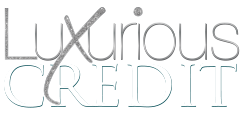When it comes to securing a loan, having no credit or little credit can be just as bad as having poor credit. This is true because both can be stumbling blocks to reaching approval for a new loan. Both having poor credit and having no credit are considered by lenders and creditors as high risk. Individuals who default and leave the lender to go the extra mile to collect the debt that is owed fall into these categories and are thought to be more of a risk. The simple truth is that, until a credit score meets minimum requirements, it will not meet the standard industry guidelines that big banks and large lending institutions must follow.
Building up your credit score is a great choice, for those who have the time to wait. However, for those who have already used and damaged your credit you may wish to explore a few alternative options while you are in the process of credit repair.
If you own assets that may be desirable to a potential lender, such as a home or other real estate, an equity line of credit is one way to temporarily get around needing good credit. Home equity loans are usually low-interest and tax-deductible. These loans are considered to be relatively safe when compared to other types of loans and can still be spent on what you like.
Of course, there is some risk involved. There are many reasons why an individual may find themselves in the process of credit repair. Poor economic practices and mismanagement of resources are not always the case. If these are the reason why credit repair has become necessary we would simply extend a word of caution regarding using a home equity line of credit.
While tapping into your home equity does give you access to the funds you may need, it also puts your property in jeopardy if you do not repay the debt as agreed. Be sure to consider whether you have a reliable and consistent source of income and the discipline to repay the equity line on time. Ultimately, this is an inexpensive option for credit, regardless of your credit score.
If you do not already have some type of equity accrued that can be drawn from there are a number of friendly financial institutions that you may be able to borrow from with little to no trouble. Similar to banks, credit unions can provide lines of credit and loans. Credit unions are owned by their members and the members commonly share an interest such as living in the same geographic area or working in the same industry. Because they are nonprofit organizations, credit unions exist to serve and meet the financial needs of it’s members. Therefore, all earnings are passed along to members in the form of high customer service and low fees.
If you have no equity to draw from and have been unable to secure a loan independently from a bank or credit union, there is one final option you may want to consider. Asking friends and family to borrow money can be a sensitive topic. Money issues can even drive a wedge between the closest of friends. Rather than asking a friend or family member to lend you their own savings, consider appealing to them as a co-signer.
If you know someone with good credit who knows your situation and trusts you to be responsible with the debt you may find that they would be willing to co-sign a loan with you. Co-signing a loan does require taking some risk so remember that if you do not repay the debt, the creditor will look to and expect payment from your co-signer in full. What’s more is that the payment history for the joint loan will be recorded on both of your credit reports. This could mean a great deal of damage for your co-signer if you don’t live up to your commitment.
Each of these options are simple and temporary alternatives to establishing and maintaining your own LuxuriousCREDIT. Our goal is to empower you to live your best life and to provide a few tips and tricks to help you along the way. If these tips were helpful to you, leave a comment below and let us know how? Do you still have lingering credit questions? Leave them in the comments below, we would love to discuss them in the coming weeks!






